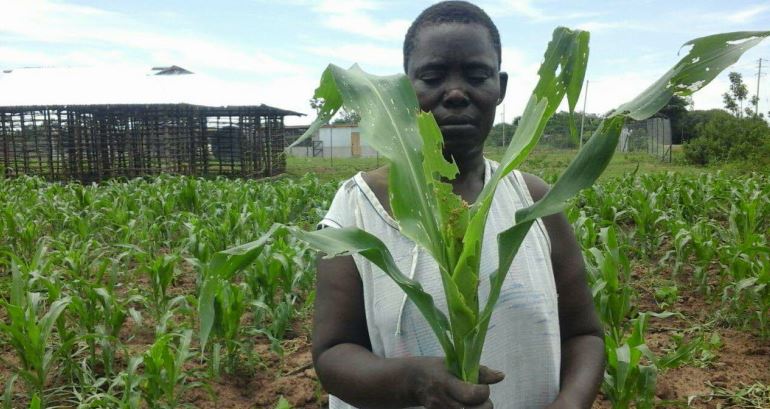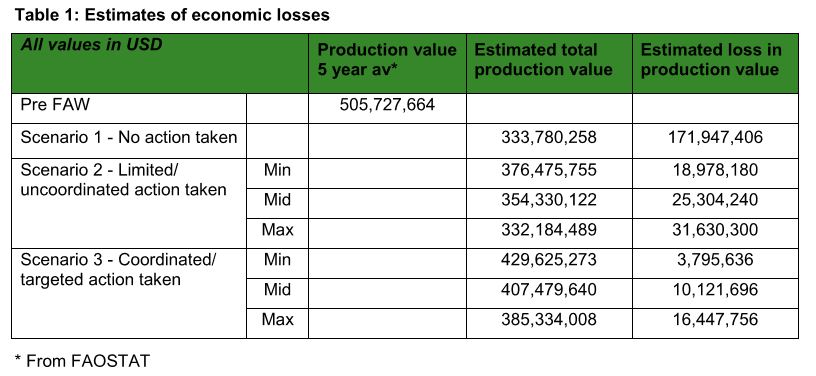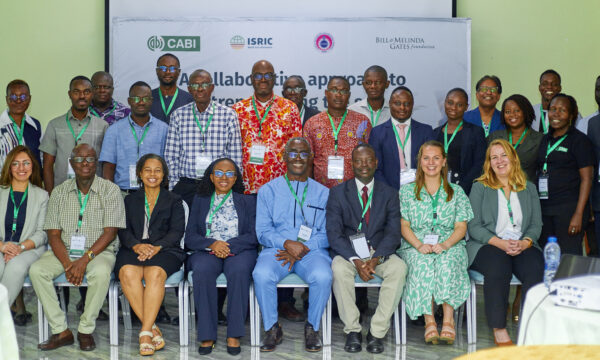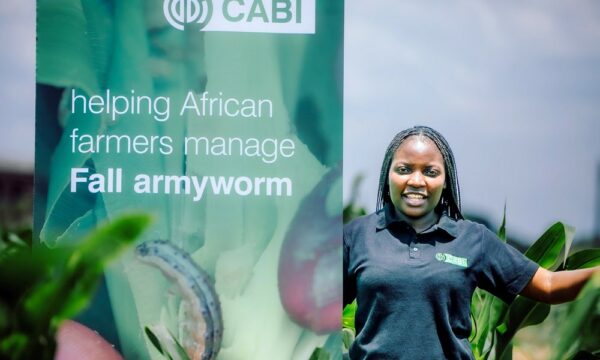
A new CABI Study Brief published on CABI.org has revealed that implementing coordinated control measures to fight Fall armyworm in Ghana can reduce the economic cost of crop losses by USD $15 million a year.
The research, entitled ‘Have actions taken to control Fall armyworm reduced the economic cost experienced in Ghana?’, based itself on data obtained from CABI surveys, the Ministry of Food and Agriculture in Ghana and FAOSTAT.
The rapid spread of the invasive crop pest, the Fall armyworm (Spodoptera frugiperda), across Africa in recent years has attracted considerable interest, especially the effect on maize farmers. The purpose of this study was to understand and assess the economic costs of the fall armyworm invasion in Ghana under different control scenarios.
Three different scenarios are modelled: one with no farmer applied control
measures, one with limited control measures and one with proactive control measures that were used in Ghana in 2017. Maximum, minimum and mid-range estimates of losses are presented for the second and third scenarios.

The model indicates that the coordinated control measures taken reduced the economic loss from an estimated mid-range of USD $25 million (min USD $19 million, max USD $31 million) to USD $10 million (min USD $3 million, max USD $16 million), a difference of approx USD $15 million over a year.
Additional information
Read the full brief to find out more about the background, modelling approach, estimates of yield loss and economic value, actions taken to control Fall armyworm, and the discussion.
Full paper reference
Williams, F., Murphy, S. T., Beseh, P. and Lamontagne-Godwin, J. (2019). ‘Have actions taken to control fall armyworm reduced the economic cost experienced in Ghana?’, CABI Study Brief 31 Impact.
DOI: https://dx.doi.org/10.1079/CABICOMM-62-8108
Related News & Blogs
CABI hosts panel to discuss youth engagement for biological control of fall armyworm in Zambia
CABI in partnership with the University of Zambia and the Zambia Agricultural Research Institute (ZARI) have hosted a panel to discuss engaging youth for the sustainable biological control of the devastating fall armyworm pest in Zambia. In recent year…
12 February 2025




